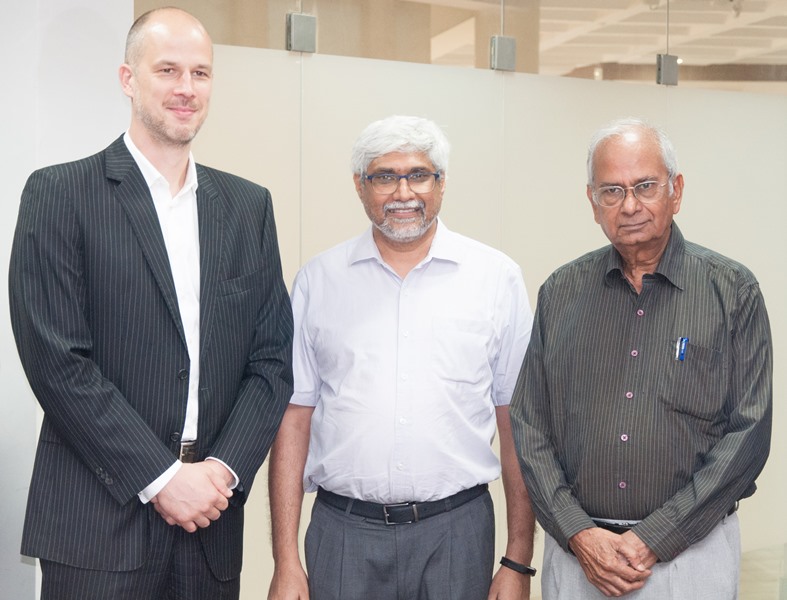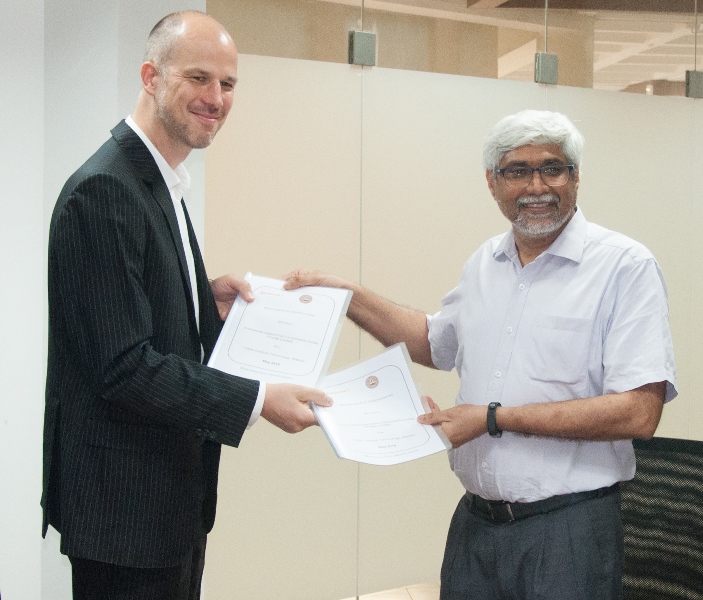Continental and Indian Institute of Technology Madras have joined hands for Advanced Research in Machine Learning. A Memorandum of Understanding (MoU) was signed recently between Continental and IIT Madras to take forward this partnership.
IIT Madras with its known capability in machine learning and bio-inspired neural networks will contribute to Continental’s ADAS (Advanced Driver Assistance Systems) business that provides drivers and passengers with additional safety and an increase in comfort. The collaboration, code-named Project NeuroMotive, will aid Continental’s long-term strategy globally towards “Vision Zero” – a future with zero accidents – through innovations and ongoing improvement of components and systems making a decisive contribution to greater road safety.
Speaking about the MoU, Mr. Prashanth Doreswamy, Market Head of Continental India and Managing Director Continental Automotive, India, said, “Continental is committed to strengthening academia connect in the region, through win-win partnership models. We believe industry- academia partnerships nurture innovation, entrepreneurship and skills development, which are value add not just for the two partners, but for the ecosystem at large.
Further, he added, “Project NeuroMotive is only a first step in our collaboration with IIT Madras. Continental will continue to invest in the technologies of tomorrow. As a technology company, we focus on making future mobility concepts a reality.”
According to Alexander Klotz, Head of Technical Center India (TCI), Continental’s in-house R&D center, “With technology growing so rapidly, collaborative forms of R&D, where experts from different sectors come together to develop complementary technologies promise better value at a quicker pace.”
“An R&D Center like Continental’s TCI is constantly exploring ways of improving its innovation potential. At Continental, AI already plays a key role in areas ranging from software to manufacturing, and TCI has in turn focused on developing this competency in-house at Bangalore, to support global projects in the areas of safety and connectivity. It is our aim to further grow local competence in AI, not just through hiring, but also by leveraging the ecosystem through relevant partnerships,” he added.
“We are glad to partner with IIT Madras for advanced research in machine learning and neural networks. Our expertise and efforts, combined with the strengths of IIT Madras, will pave the way for technological advancements that further reduce traffic casualties, and potentially even develop vehicles incapable of getting into an accident,” said Alexander Klotz.
According to Ravindra Gettu, Dean (Industrial Consultancy and Sponsored Research), IIT Madras, “As an institution that is in the frontier of research, we are pleased to collaborate with Continental. Prof. Srinivasa Chakravarthy, head of Neuroscience laboratory will collaborate with Continental on Project NeuroMotive. IIT Madras’ expertise in bio-inspired neural networks can help expand the scope of what assisted driving functions can accomplish. Bio-inspired neural networks are becoming increasingly important for industries and businesses. They help to solve problems based on the biological knowledge of how human brain learns and processes information. Thanks to advancements in technology, we can use this knowledge to improve the future of mobility.”
Mr. Praveen Kumar, Head of Engineering, Business Unit ADAS (India) Continental Automotive, said, “ADAS systems are the backbone for automated driving. These systems assist the driver both in everyday situations, and, are available in dangerous situations, when they warn the driver and even intervene in driving when necessary. We need fail-safe architecture that, in the event of a potential malfunction, keeps the vehicle in a safe operating state. This is why Continental already uses AI to aid different aspects of assisted and automated driving. Deep Learning based methods outperform classic methods with respect to performance. We believe it is imperative to continue exploring it to its full extent. We are excited about the possibilities project NeuroMotive will open up, to support our aim of making roads safer.”

